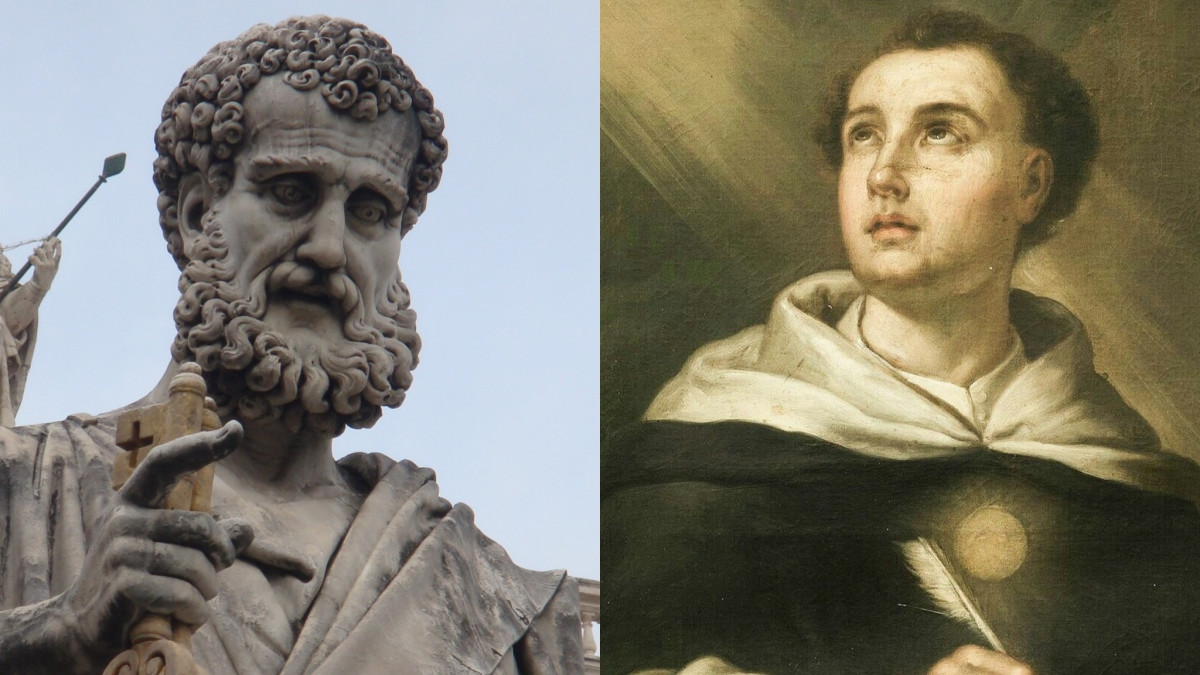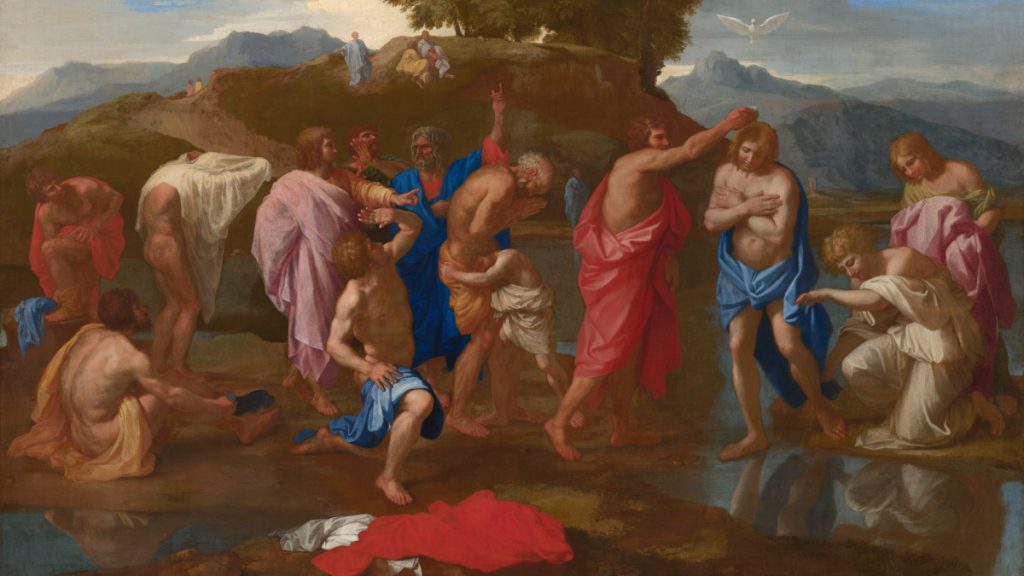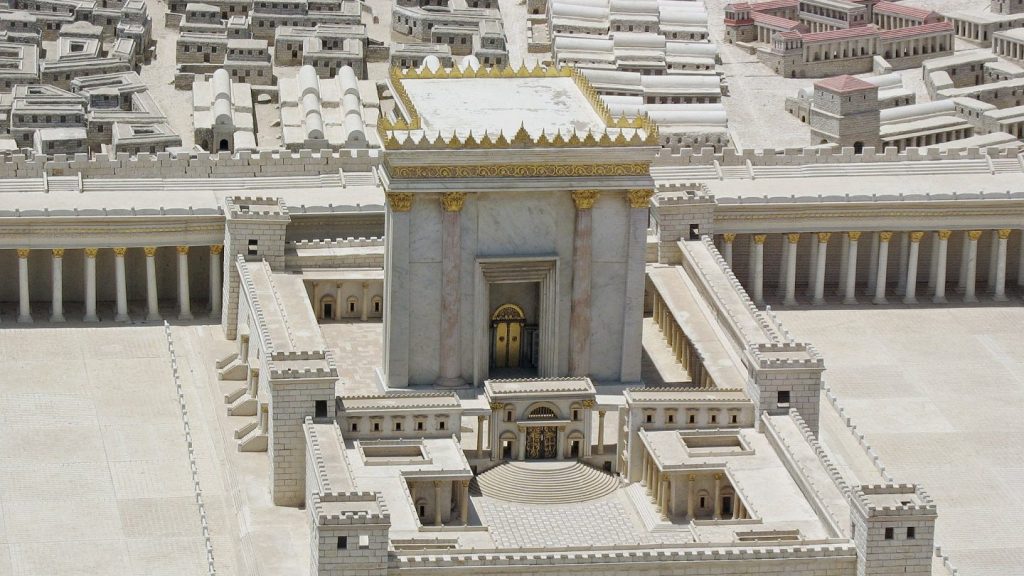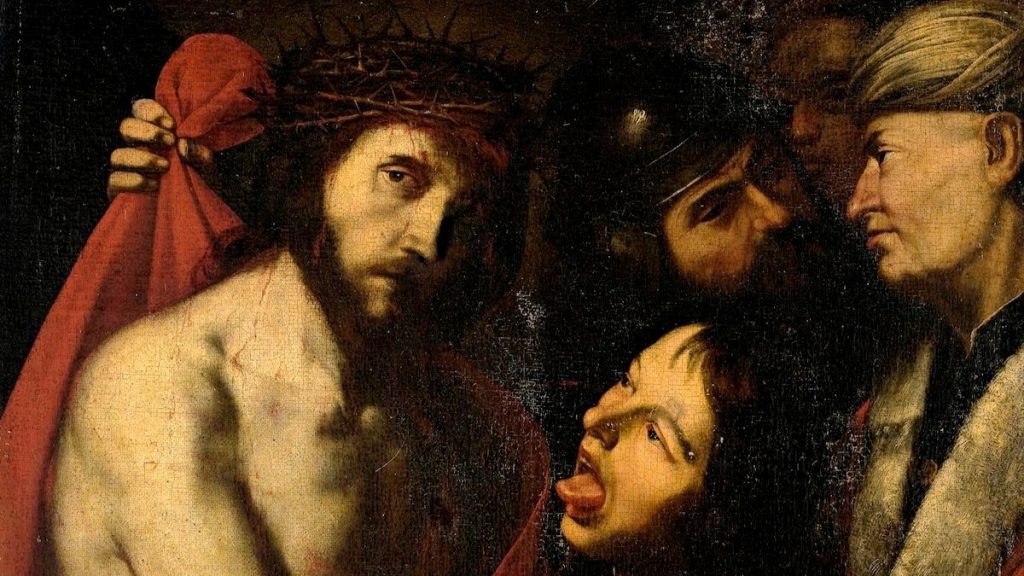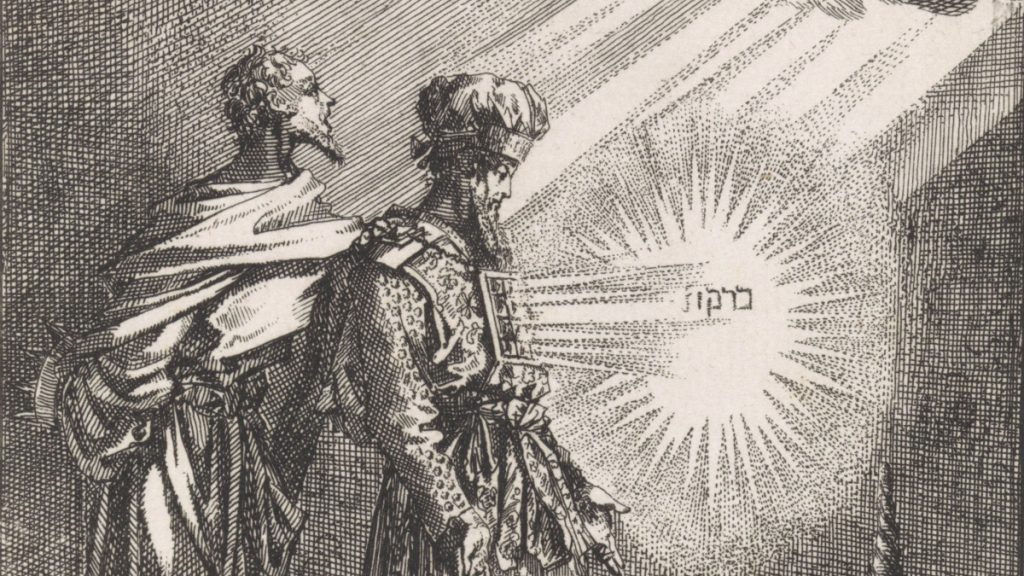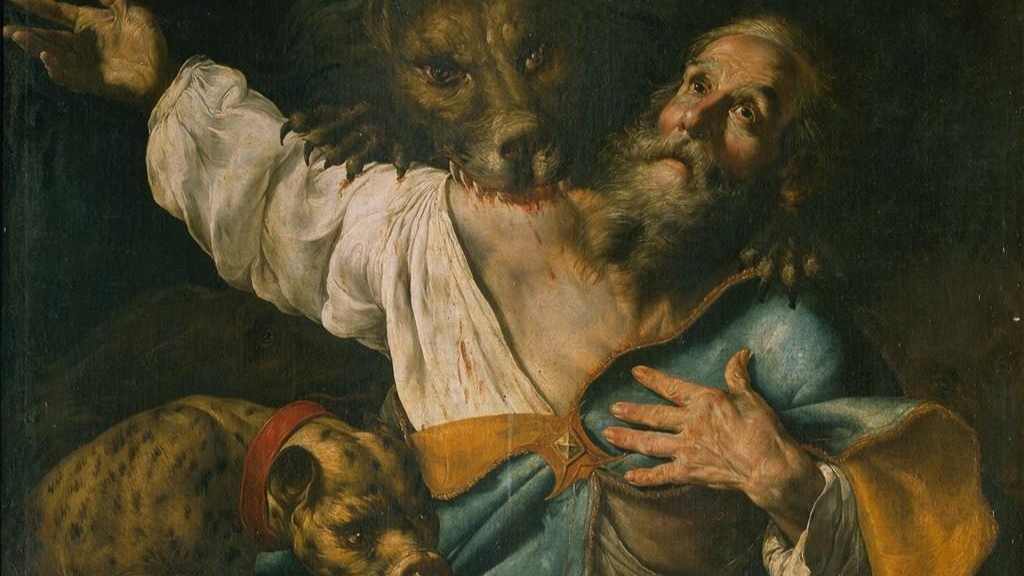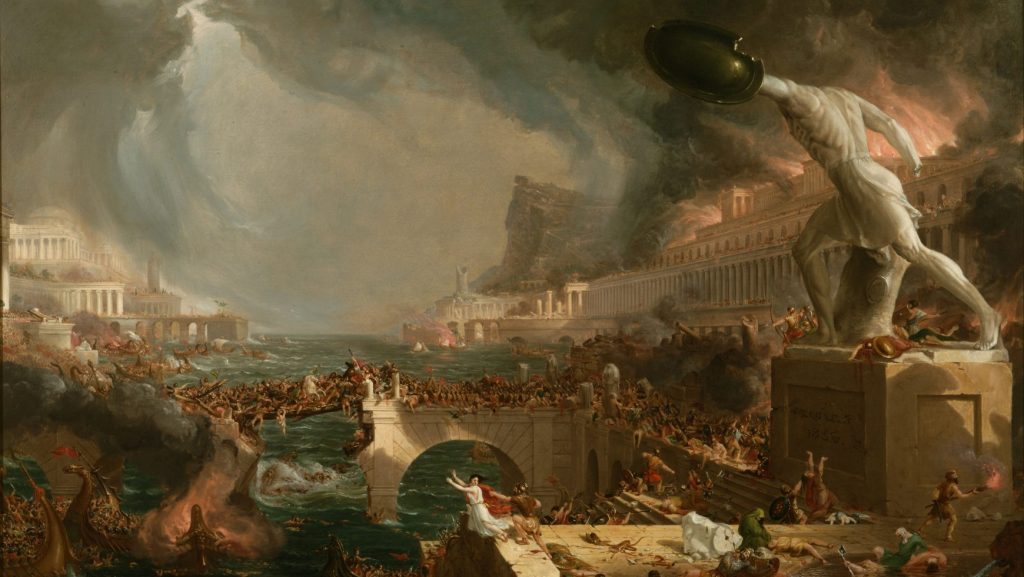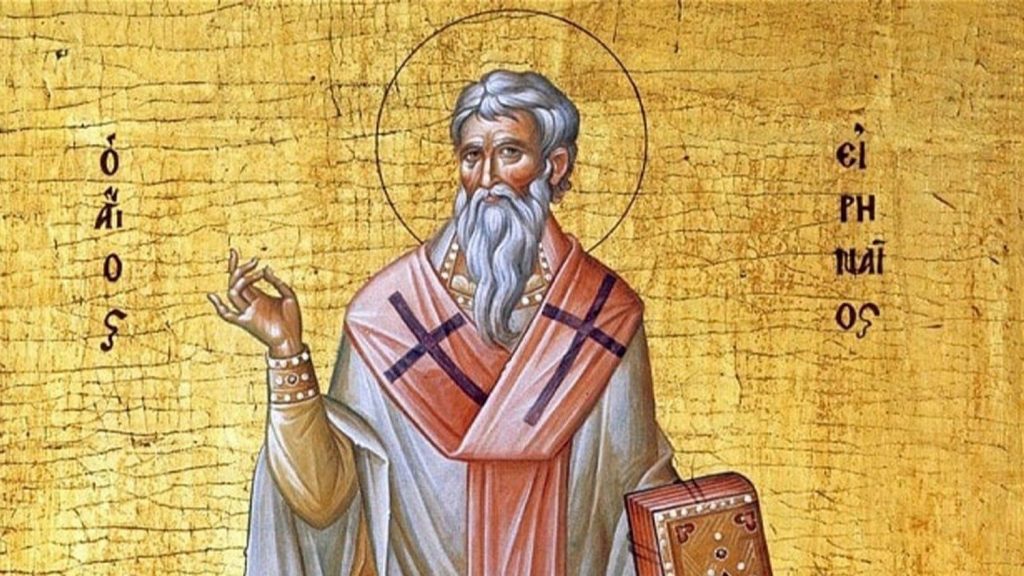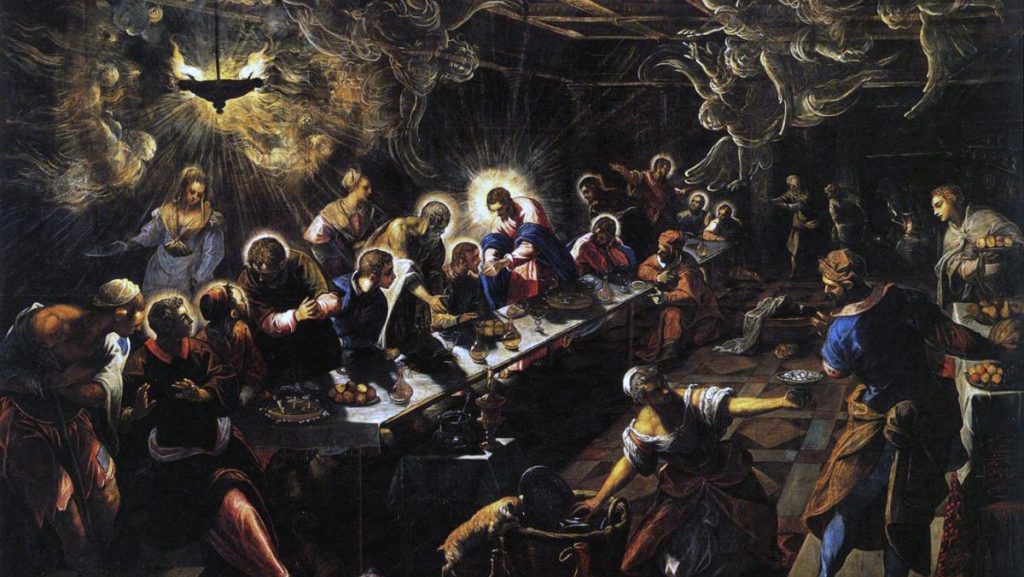Related Resources
- Quote Archive | The Papacy and the Invincibility of the Church
- Study Bank | The Ancient Lists and Testimonies of Popes Succeeding from Peter
Introduction
In this article, we’ll present the “brief” argument for the papacy from the greatest Catholic theologian, St. Thomas Aquinas. This argument comes from Summa Contra Gentiles (Book 4, Ch. 76). We are labeling it “brief” not only because of its brevity, but because it does not include all of St. Thomas’s defenses of the papacy. But as always, we stand in awe of how concise, logical, and biblical St. Thomas is.
Roadmap
Our Roadmap is as follows:
- St. Thomas’s thesis is that the papacy was divinely instituted by Christ, which he proves by making four arguments, and answering two objections. They are as follows:
- Argument #1: As local Christians have local heads in their bishops, so too does the whole Christian people a universal head in the Pope.
- Argument #2: There must always be a way to authoritatively resolve disputes about the Faith for all Christians.
- Argument #3: The best form of government for the sake of peace and unity is rule by one, not by many.
- Argument #4: The Church on earth is an imitation of the Church in Heaven, which has one head.
- Objection #1: Christ is the Chief Shepherd.
- Objection #2: St. Peter does not have successors.
- We will conclude with a summary of St. Thomas’s arguments.
Argument #1: Local Christians, Local Heads; All Christians, One Head
St. Thomas’s first argument is as follows:
Now, although the people are distributed among various dioceses and cities, nevertheless there is but one Church, and therefore only one Christian people.
Consequently, just as a bishop is appointed as the head of a certain people and a particular church, so must the whole Christian people be subject to one who is the head of the whole Church.
This argument from St. Thomas essentially relies on the basic reality that virtually all Christians had always known and accepted, namely that the Church is governed by the successors of the Apostles, the bishops. Since local Christians require a head for their own governance, the same principle necessarily applies at the universal level. There is no reason to think Christians require only local governance, since they are part of a society, the Church, that extends far beyond the local.
In my own articulation of why I believe in the divine establishment of the Papacy (often when people ask why I did not become Eastern Orthodox), I summarize it in three points: logic, Scripture, and history.
This first argument from St. Thomas relates to my first point, namely “logic.” This point is essentially that all societies of any kind require a head for the direction of their affairs. This is “Political Philosophy 101.” If a society exists, it has a head of some kind. There is no society–whether angels in heaven, the family, a company, a nation, a parish, a diocese, or so much as a club, etc.–that lacks a head who possesses some form of jurisdiction over the members of that society such that they have a right to command, and the other members have a duty to obey.
The same is true of Christ’s Church at the universal level. If all Christians are part of one, visible, universal society, then it necessarily follows that this society must have a head.
As St. Thomas points out, if Christians require heads at the local level in the persons of their bishops, they require a head at the universal level at the universal level as well. To claim that there is no universal head of all Christians would be the equivalent of saying Christians do not all belong to the same universal society.
Argument #2: Resolving Disputes About the Faith for All Christians
St. Thomas’s second argument is as follows:
Again, the unity of the Church requires that all the faithful be of one faith. Now, questions tend to arise about matters of faith, and the Church would be divided by differences of opinion unless its unity were safeguarded by the pronouncements of one.
Therefore, in order to safeguard the unity of the Church, it is necessary that there be one who presides over the whole Church.
Now Christ loved the Church and shed His blood for her; therefore, He did not fail her in her needs, seeing that it is said even of the Synagogue: “What more was there to do for my vineyard, that I have not done in it?” (Isa. 5:4).
There can be no doubt, therefore, that Christ provided His Church with a head.
This second argument from St. Thomas is closely related to the first. Societies do not have heads to aggrandize the heads. Rather, they have heads in order to properly govern the body of their members. The head exists for the body, not the body for the head.
We know from Scripture that there is only “one body and one spirit…one hope…one Lord, one faith, one baptism, one God and Father of us all” (Eph. 4:4-6). We also know from history–both in Scripture itself, and since the time of the Apostles–that disputes about the one Faith have been a permanent fact of life for the Church. In order for such disputes to be settled so that all Christians may publicly profess the same Faith, there must be an authority in the Church that can publicly settle such disputes.
There were no protestants around when St. Thomas was alive. What he likely had in mind was the schismatic Greek church, which today we call the “Eastern Orthodox.” Since both sides of that schism acknowledge the authority of the episcopacy (the office of bishop as successor of the Apostles), the point St. Thomas is making is most relevant to disputes between bishops themselves. If bishops are disputing with one another about the Faith, how can their disputes ultimately be resolved? The Catholic answer of St. Thomas is the papacy. There must be one bishop who is head of all in order to resolve conflicts among them. The buck must stop somewhere.
In making this argument, St. Thomas is doing nothing more than repeating a truth articulated by many Church Fathers, namely that the papacy exists in order to remove the very possibility of schism (just as the office of bishop exists, at the local level, in order to remove the same possibility at the local level). That does not mean that schisms never happen. It simply means that in principle, Christ has provided His Church with the means to avoid it.
A few examples from the Church Fathers–all acknowledged as saints by the Eastern Orthodox–illustrating this principle would be helpful before moving on to St. Thomas’s third argument.
For example, St. Jerome observes in Against Jovinianus (Book 1, §26) the following:
But you say, the Church was founded upon Peter: although elsewhere the same is attributed to all the Apostles, and they all receive the keys of the kingdom of heaven, and the strength of the Church depends upon them all alike, yet one among the twelve is chosen so that when a head has been appointed, there may be no occasion for schism.
Likewise, St. Optatus of Milevis observed the following in Against the Donatists (Book 2, §2, pg. 32):
Therefore you cannot deny that you know that the first episcopal see was set up in Rome, which was occupied by Peter the head of all the Apostles (for which reason he was called Cephas) so that in this one see unity might be preserved by all, lest each of the other Apostles should maintain his own; thus anyone who set up another see against this one see would be a schismatic and a sinner.
Similarly, St. Pope Gelasius observed1:
Was it that the rest of the holy and blessed Apostles were not clothed with his [Peter’s] virtue? Who dare assert this? No, but that, by a Head being constituted, the occasion of schism might be removed…
With that, we move on to St. Thomas’s third argument.
Argument #3: The Best Form of Government is Rule by One for the Sake of Peace and Unity
St. Thomas’s third argument is as follows:
Further, we cannot doubt that the government of the Church was perfectly provided for, since it was devised by one through whom “kings reign and rulers decree what is just” (Prov. 8:15).
Now the best form of government is when a people is governed by one: for it is clear that government’s end is peace, for peace and unity of the subjects is the end of the governing authority, and unity is more fittingly ensured by one than by many.
Therefore, the government of the Church is so arranged that one presides over the whole.
This argument likewise draws from the principles of “Political Philosophy 101.” Rule “by one” does not mean that only one person or office is making every decision. Rather, it means that one person or office can ultimately make certain decisions for all. St. Thomas does not mean that “the many” cannot be involved in the power of the state, for example, in any way. In fact, he states in various places that a mixed form of government including monarchical, aristocratical, and democratic elements–the rule of one, the rule of few, and the rule of many–is the best.
But at the end of the day, even in this form of government, there must be one who is in some sense the leader, who can make the final call on certain issues for all. For example, we can see this in the American form of government where, despite the fact that our Constitution establishes a mixed regime, the President of the United States is ultimately both the head of state and government. The Founders established this “elective monarchy” with authority to execute laws independent of individual states for precisely the reasons laid out by St. Thomas. If there is ultimately no singular authority who can execute the laws, then the peace and unity of society is threatened. The Church is not an exception to this rule.
We see something similar with God’s establishment of the Israelite polity. In Exodus 18, Moses is constantly occupied with acting as judge of the people’s disputes. His father-in-law Jethro gives him a suggestion (Ex. 18:17-23):
17 Moses’ father-in-law said to him, “What you are doing is not good. 18 You and the people with you will wear yourselves out, for the thing is too heavy for you; you are not able to perform it alone. 19 Listen now to my voice; I will give you counsel, and God be with you! You shall represent the people before God, and bring their cases to God; 20 and you shall teach them the statutes and the decisions, and make them know the way in which they must walk and what they must do. 21 Moreover choose able men from all the people, such as fear God, men who are trustworthy and who hate a bribe; and place such men over the people as rulers of thousands, of hundreds, of fifties, and of tens. 22 And let them judge the people at all times; every great matter they shall bring to you, but any small matter they shall decide themselves; so it will be easier for you, and they will bear the burden with you. 23 If you do this, and God so commands you, then you will be able to endure, and all this people also will go to their place in peace.”
Notice that Jethro’s advice does not change Moses’s ultimate status as God’s appointed leader of all the people. In this sense, there is still “rule by one.” Rather, Jethro is suggesting an arrangement whereby conflicts and disputes are mostly managed at the “local” level, while more difficult issues ultimately converge toward the seat of Moses. Moses accepts Jethro’s advice and acts accordingly (Ex. 18:24-27):
24 So Moses gave heed to the voice of his father-in-law and did all that he had said. 25 Moses chose able men out of all Israel, and made them heads over the people, rulers of thousands, of hundreds, of fifties, and of tens. 26 And they judged the people at all times; hard cases they brought to Moses, but any small matter they decided themselves. 27 Then Moses let his father-in-law depart, and he went his way to his own country.
Again, notice that this arrangement does not ultimately change the fact that Moses has chief authority over the people for the sake of “peace and unity,” as St. Thomas says. Many more people are now involved in judging disputes. But at the end of the day, that does not change Moses’s status as chief judge over all. Rather, he is simply delegating his authority to lower levels for easier cases, while both maintaining his unique status before God, and retaining his authority to judge the most difficult cases. This would be an example of “rule by one” that, as St. Thomas makes clear elsewhere, can prudentially include rule by the “few” and the “many” alongside it (such as in a mixed regime).
This same reality is seen throughout the history of the Catholic Church (including today), where most affairs are managed locally, and papal intervention–while possible–nonetheless remains fairly uncommon, and is rarely “step one” in the resolution of a difficulty. However, papal authority, or “rule by one,” exists in those cases where decisions for all are required for the sake of “peace and unity.”
In fact, St. Pope Leo the Great described something very similar to this in the 400s when he wrote in Letter 14 (§10):
[Local bishops] whose appointment is in the greater cities should undertake a fuller responsibility, through whom the care of the universal Church should converge towards Peter’s one seat [in Rome], and nothing anywhere should be separated from its Head [the Pope]. Let not him then who knows he has been set over certain others [local bishops] take it ill that someone [the Pope] has been set over him, but let him himself render the obedience which he demands of them…
Argument #4: The Church on Earth Imitates the Church in Heaven, Which Has One Head
St. Thomas’s fourth argument, perhaps his most unique, is as follows:
Moreover, the Church Militant originates from the Church Triumphant by its likeness to it: hence in the Apocalypse, John saw “Jerusalem coming down out of heaven” (Apoc. 21:2); and Moses was bidden to make all things “after the pattern for them, which is being shown you on the mountain” (Ex. 25:40).
Now there is one who presides over the Church Triumphant, namely God, who also presides over the whole universe, for it is said: “They shall be his people, and God Himself will be with them and be their God” (Apoc. 21:3).
Therefore, in the Church Militant, there is one who presides over all.
Hence it is said: “The people of Judah and the people of Israel shall be gathered together, and they shall appoint for themselves one head” (Hos. 1:11). And our Lord said: “There shall be one flock, one shepherd” (John 10:16).
I’ve personally never heard this particular argument made by anyone other than St. Thomas. But it is in fact full of explanatory power.
Catholics often point out how the Mass is a participation on earth in the worship of heaven above. St. Thomas’s argument applies a similar logic to the papacy.
The Church Militant on earth, St. Thomas says, is patterned after the Church Triumphant in heaven. This truth is alluded to in multiple places in Scripture, where the Tabernacle/Temple is said to be built according to a heavenly “pattern” (i.e. Ex. 25:9, 40; Heb. 8:5). Thus, the heavenly Temple is the “original” of the “copy” on earth.
If this was true of the Old Covenant, how much more the New Covenant? Prior to Christ, the new High Priest had not yet entered into this “original” heavenly Temple. But that’s precisely what Christ did at His Ascension, ascending into Heaven, fully God and fully man, to sit at the right hand of God the Father as Priest, Prophet, and King. Once this was done, the Holy Spirit descended on the Church below at Pentecost, and through the power of regeneration created new members of Christ. Hence the Church on earth ultimately originating from the Church in heaven. As Christ told us quite explicitly, the third and final Temple is His Body, which He equates with the Church, whose members are both in Heaven and on earth (sidestepping, for the moment, the Church Suffering in Purgatory). Hence St. Thomas’s argument that the Church Militant is a “copy” of the heavenly “original,” the Church Triumphant.
Of course, there are also differences between the two. The Church Militant is still enduring many trials that the Church Triumphant has conquered. The Church Militant still struggles against sin, while the Church Triumphant does not. At the end of history, both are perfectly united in a New Heaven and New Earth. However, in the meantime, they are still bound together as members of the same Body of Christ, members of the same Church, whose perpetuity, victory, and authority have all been promised and guaranteed by Christ.
But since, as St. Thomas says, “the Church Militant originates from the Church Triumphant”–meaning, ultimately, the nation of priests (the Church) originates from the High Priest (Christ, who is now in heaven), and the third and final Temple on earth originates from and is part of the same third and final Temple in heaven–the Pope does not preside over the Church Militant in a way that is independent of Christ. Rather, he does so in a way that points to Christ and the Church Triumphant. As the Church Triumphant has one head, so too does the Church Militant, whose head is not separate from, but indeed originates from and is under the Head of all, who is Christ.
This correspondence between Church Triumphant and Church Militant is also the basis for the Church Militant’s infallibility, and Christ’s promise that whatever is bound and loosed on earth by the keys given to St. Peter (and through him to the rest of the Apostles and their successors) shall likewise be bound and loosed in heaven (Matt. 16:19; 18:18). See Becoming Catholic #34 where we show that the Jewish understanding of the term “binding and loosing” used by Christ matches the Catholic assertion about the authority of the Church.
We now proceed to the first objection addressed by St. Thomas.
Objection #1: Christ is the Chief Shepherd
St. Thomas responds to this first objection as follows:
Someone, however, may say that the one head and the one shepherd is Christ, who is the one bridegroom of the one Church, but this reply is not sufficient.
It is evident that Christ Himself accomplishes all the Church’s sacraments: it is He who baptizes; it is He who forgives sins; He is the true priest, who offered Himself on the altar of the cross, and by whose power His own body is consecrated daily on the altar.
And yet, because he was not to remain bodily present to all the faithful, He chose ministers, that through them He might give that same body to the faithful, as we have shown above.
For the very reason, then, that He was about to withdraw His bodily presence from the Church, He needed to appoint one to take His place in governing the whole Church.
Therefore, before His Ascension, He said to Peter: “Feed my sheep” (John 21:17); and before His Passion: “When you have converted again, confirm your brothers” (Luke 22:32); and to him alone He made the promise: “I will give you the keys of the kingdom of heaven” (Matt. 16:19), in order to show that the power of the keys was to be received from him by others, so as to safeguard the unity of the Church.
St. Thomas refutes this objection by relying on verses in Scripture that are often cited in defense of the papacy. In addition to these, others could be cited in which Christ speaks more generally to all the Apostles in extraordinarily strong terms about the authority He is giving them.
In both Matthew (19:28) and Luke (22:28-30), Christ tells the Apostles that they will rule Israel from thrones. This reality seems to be spoken of in the book of Apocalypse as well (20:4-6), in which “those to whom judgment was committed” sit on thrones after the binding of the dragon (presumably, referring to the binding of Satan by Christ’s death and resurrection).
In the Gospel of Luke, Christ says to the Apostles: “He who hears you hears me, and he who rejects you rejects me, and he who rejects me rejects him who sent me” (Luke 10:16).
Likewise, in the Great Commission, Christ gives the Apostles the authority to baptize and teach the nations to observe everything He has commanded (Matt. 28:18-20).
Christ even goes so far as to say that the glory given to Him by the Father He has given to the Apostles (John 17:22): “The glory which thou hast given me I have given to them, that they may be one even as we are one.” This verse is particularly powerful, because Christ is not speaking about His divinity, for the Son is equally divine as the Father, nor is He bestowing divinity on the Apostles. He is instead speaking of the glory bestowed on His humanity, which He then says He bestowed on the Apostles, and thus on their humanity as well (since they lack a divine nature). This extraordinary assertion undergirds not only the papacy, but the Church as a whole, which is Christ’s Body, and thus benefits from the same glory He received from the Father, and now bestows on His Church, as His Body.
These and other verses prove St. Thomas’s assertion that despite the fact that Christ is ultimately the Shepherd of the Church, this does not mean there are not true shepherds who rightly govern with divine permission under Him. Chief among these subordinate shepherds is St. Peter himself, which brings us to the second objection addressed by St. Thomas.
Objection #2: Peter Does Not Have Successors
St. Thomas responds to this second objection as follows:
It cannot be said that, although He conferred this dignity on Peter, it does not pass from him to others.
For it is evident that Christ so instituted His Church that it would endure to the end of the world: “Of the increase of his government and peace there will be no end, upon the throne of David, and over his kingdom, to establish it, and to uphold it with justice and with righteousness from this time forth and forevermore” (Isa. 9:6).
Hence it is evident that those He appointed to the ministry then and there were to communicate their powers to their successors until the end of time for the good of the Church, especially since He says: “Behold, I am with you always, to the close of the age” (Matt. 28:20).
This suffices to refute the presumptuous error of those who dare to withdraw from obedience and submission to Peter by refusing to acknowledge his successor, the Roman Pontiff, as the shepherd of the universal Church.
St. Thomas responds to this second objection by affirming the reality of apostolic succession (see Quote Archive | Apostolic Succession). He also points to Christ promise that “I am with you always, to the close of the age” addressed to the Apostles at the Great Commissioning. But since the Apostles died in the first century, and the “close of the age” has not yet come, this promise must necessarily apply not only to the Apostles, but to their successors.
Likewise, if Christ established St. Peter as the head of the Church, and if apostolic succession is true, then it is only logical that the superior authority of St. Peter would likewise be passed down through his successors. If the Church at its smallest and least diverse had a divinely constituted head, there is no reason to think St. Peter’s successors would not continue in the same position as the Church grows in number and diversity across the nations of the world.
Conclusion
In summary, St. Thomas’s brief argument in favor of the papacy consists of the following points:
- Argument #1 is Christians require a universal head (the Pope) for the same reason they have local heads (bishops).
- Argument #2 is the need for an authority who can resolve disputes about the Faith for all.
- Argument #3 is that peace and unity are better secured by the rule of one than many.
- Argument #4 is that the Church Militant is a type and copy of the Church Triumphant, from which it originates. The Church Triumphant has a Head (Christ), therefore, so does the Church Militant (the Pope, under Christ).
- Objection #1 that Christ is the one Shepherd was refuted by St. Thomas by showing that Christ clearly established other shepherds with His own authority beneath Him, and preeminently St. Peter.
- Objection #2 that St. Peter does not have successors was refuted by St. Thomas by showing that the Old Testament prophecy of the eternal Messianic kingdom, and Christ’s promise that the Church would endure to the end of the age, necessarily means that the Apostles who governed the Church–including St. Peter–had successors after their deaths.
